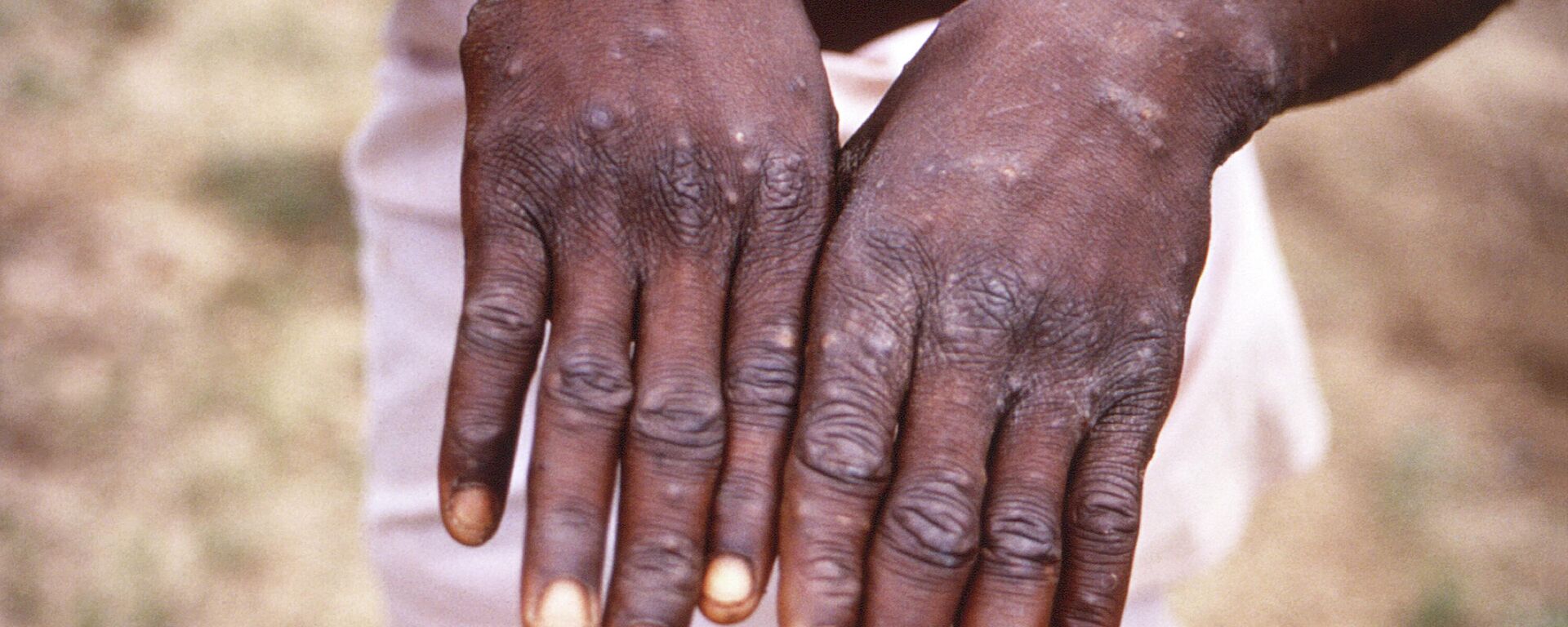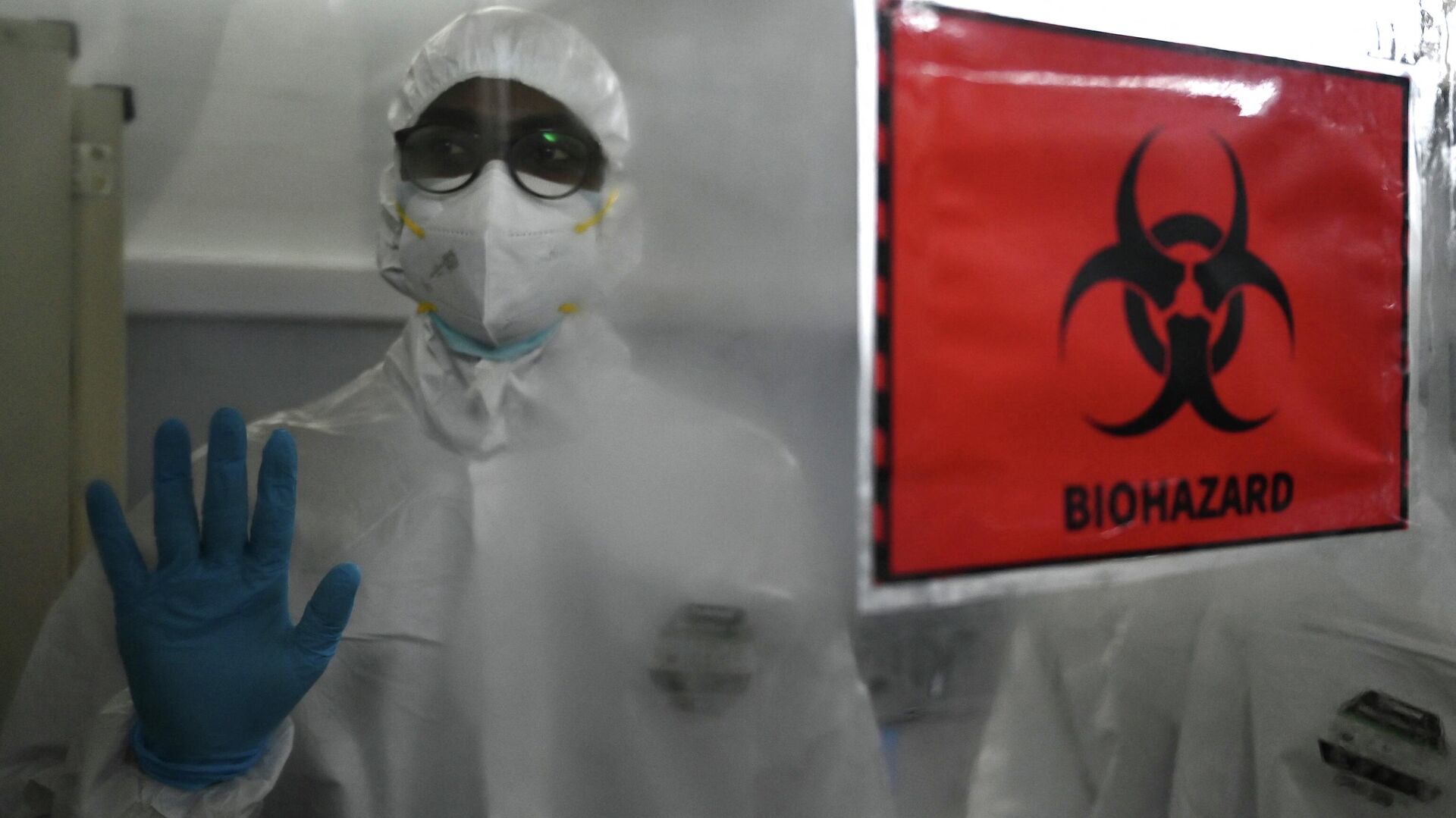https://sputnikglobe.com/20221128/who-to-use-alternative-term-for-monkeypox-to-avoid-stigmatizing-1104795577.html
WHO to Use Alternative Term for Monkeypox to Avoid Stigmatizing
WHO to Use Alternative Term for Monkeypox to Avoid Stigmatizing
Sputnik International
MOSCOW (Sputnik) - The World Health Organization announced on Monday that it would employ the term "mpox" as a synonymous alternative to the monkeypox disease... 28.11.2022, Sputnik International
2022-11-28T15:31+0000
2022-11-28T15:31+0000
2022-11-28T15:43+0000
world
monkeypox
world health organization (who)
https://cdn1.img.sputnikglobe.com/img/07e6/0b/03/1103477815_0:159:3079:1890_1920x0_80_0_0_1812038230c5c36ce0e126e1bf7f1853.jpg
The WHO specified that both terms would be used simultaneously for a transition period of one year, until "monkeypox" was "phased out" completely."When the outbreak of monkeypox expanded earlier this year, racist and stigmatizing language online, in other settings and in some communities was observed and reported to WHO. In several meetings, public and private, a number of individuals and countries raised concerns and asked WHO to propose a way forward to change the name," the WHO said.According to the press release, mpox will be included in the 11th revision of the International Classification of Diseases (ICD), the current global standard for health data, clinical documentation and statistical aggregation. The WHO specified that updating the ICD usually took several years, however the process had been accelerated for pressing issues.The WHO noted that it was diligent in finding a solution to the problem and elaborating on the replacement term."Various advisory bodies were heard during the consultation process, including experts from the medical and scientific and classification and statistics advisory committees which constituted of representatives from government authorities of 45 different countries," the WHO said.In order to preserve historic data, the term "monkeypox" can still be searched in the ICD.In June, a group of scientists signed a letter urging the WHO to find a new name for the disease, which will help to avoid discrimination and stigmatizing of patients. In August, the WHO opened an online platform, where scientists, experts and the general public from around the globe were able to share their concerns and suggest a possible non-discriminatory term for monkeypox.As of November 28, 81,107 confirmed monkeypox cases, including 55 fatalities, had been registered in 110 countries since the beginning of 2022, according to the latest data from the WHO.Monkeypox is a rare viral disease that is usually transmitted to people from wild animals and is endemic in some African countries. The disease can be transmitted through body fluids, respiratory droplets and other contaminated materials. The disease usually results in fever, rash and swollen lymph nodes. Human monkeypox was first identified in 1970, but it was given its name after the disease was discovered in monkeys in1956.
https://sputnikglobe.com/20220919/chinas-chief-health-expert-warns-against-touching-foreigners-over-monkeypox-fears-1100976941.html
Sputnik International
feedback@sputniknews.com
+74956456601
MIA „Rossiya Segodnya“
2022
Sputnik International
feedback@sputniknews.com
+74956456601
MIA „Rossiya Segodnya“
News
en_EN
Sputnik International
feedback@sputniknews.com
+74956456601
MIA „Rossiya Segodnya“
Sputnik International
feedback@sputniknews.com
+74956456601
MIA „Rossiya Segodnya“
monkeypox, who on monkeypox, monkeypox term stigma
monkeypox, who on monkeypox, monkeypox term stigma
WHO to Use Alternative Term for Monkeypox to Avoid Stigmatizing
15:31 GMT 28.11.2022 (Updated: 15:43 GMT 28.11.2022) MOSCOW (Sputnik) - The World Health Organization announced on Monday that it would employ the term "mpox" as a synonymous alternative to the monkeypox disease, due to the offensive connotation of the original term.
The WHO specified that both terms would be used simultaneously for a transition period of one year, until "monkeypox" was "phased out" completely.
"When the outbreak of monkeypox expanded earlier this year, racist and stigmatizing language online, in other settings and in some communities was observed and reported to WHO. In several meetings, public and private, a number of individuals and countries raised concerns and asked WHO to propose a way forward to change the name," the WHO said.
According to the press release, mpox will be included in the 11th revision of the International Classification of Diseases (ICD), the current global standard for health data, clinical documentation and statistical aggregation. The WHO specified that updating the ICD usually took several years, however the process had been accelerated for pressing issues.
The WHO noted that it was diligent in finding a solution to the problem and elaborating on the replacement term.
"Various advisory bodies were heard during the consultation process, including experts from the medical and scientific and classification and statistics advisory committees which constituted of representatives from government authorities of 45 different countries," the WHO said.
In order to preserve historic data, the term "monkeypox" can still be searched in the ICD.

19 September 2022, 16:09 GMT
In June, a group of scientists signed a letter urging the WHO to find a new name for the disease, which will help to avoid discrimination and stigmatizing of patients. In August, the WHO opened an online platform, where scientists, experts and the general public from around the globe were able to share their concerns and suggest a possible non-discriminatory term for monkeypox.
As of November 28, 81,107 confirmed monkeypox cases, including 55 fatalities, had been registered in 110 countries since the beginning of 2022, according to the latest data from the WHO.
Monkeypox is a rare viral disease that is usually transmitted to people from wild animals and is endemic in some African countries. The disease can be transmitted through body fluids, respiratory droplets and other contaminated materials. The disease usually results in fever, rash and swollen lymph nodes. Human monkeypox was first identified in 1970, but it was given its name after the disease was discovered in monkeys in1956.



